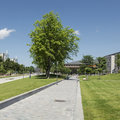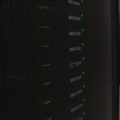Latest News
09 February 2022
First round of ELSA Labs awarded
TU Delft will work in two of the five ELSA Labs that have been awarded in the NWA call 'Human AI for an inclusive society - towards an ecosystem of trust'. In these two ELSA Labs ('Ethical, Legal and Societal Aspects') researchers, the government and businesses are working on knowledge about the development and application of reliable, human-centred AI in the fields of Defence and Public Safety respectively.
08 February 2022
CWI investigation
The TU Delft Executive Board has received a fresh internal report regarding possible irregularities in a few publications on Majorana research. It has been suggested that there may have been irregularities in data processing by one or more of the authors. These possible irregularities were found by some of the other authors following questions from scientists outside TU Delft.
04 February 2022
TU Delft’s new programme of MOOCs aims to speed up the energy transition

On 8 February 2022, TU Delft launches a programme of four new massive open online courses on Intelligent and Integrated Energy Systems.
03 February 2022
Knowledge institutes join forces to research climate change and air pollution using satellites

The KNMI, TNO, SRON and Delft University of Technology will collaborate on research and technology development in the field of earth observation.
02 February 2022
TU Delft campus climate neutral by 2030

By 2030, TU Delft aims to be operating in a completely sustainable manner. All activities on and from the campus will then be carbon neutral, circular, climate adaptive and contributing to the quality of life for its users and for nature. Together with all staff, students and partners of the university, sustainability coordinator Andy van den Dobbelsteen is working hard to realize this ambition. Everyone can follow the progress on a new website.
27 January 2022
A ‘treasure map’ to find meteorites in Antarctica

Meteorites are samples from space that can be found as stone-like material on the surface of the Earth. Once recovered, meteorites provide crucial information on the formation and evolution of our Solar System. Which in turn is important for research into the origins of our planet, and of life on Earth. The scientists’ new calculations suggest that more than 300,000 meteorites are still present, with enormous scientific potential, but until now they have been difficult to find.
24 January 2022
TU Delft's Reactor Institute takes another step forward as a testing ground for innovation

The Reactor Institute Delft (RID) continuously invests in better measuring methods and techniques in order to facilitate pioneering research. We have accelerated this with the OYSTER (Optimised Yield - for Science, Technology & Education - of Radiation) programme.
21 January 2022
TU Delft supercomputer officially opened

As of 2022, TU Delft will have its own supercomputer: DelftBlue. The official opening of this DelftBlue supercomputer was on Thursday, January 20th. Researchers, students and education can use the computing power of the Delft High Performance Computing Centre (DHPC) to solve and calculate complex societal issues.
20 January 2022
Delft students present new sustainable hydrogen-powered racing car

TU Delft students presented their latest hydrogen-powered racing car on the Scheveningen Pier last Tuesday. With its top speed of 300 kilometers per hour, the 'Forze IX' is expected to compete with Porsches and Lamborghinis on the Zandvoort circuit and definitively break the spell for hydrogen in the automotive industry.
17 January 2022
Effectiveness of 2G and 3G has declined

At the request of the Dutch Ministry of Health, Welfare and Sport, researchers from TU Delft, UMC Utrecht and Populytics investigated the extent to which the various types of COVID certificates (coronatoegangsbewijs, CTB) can help to prevent the spread of COVID-19 in society. The 3G (vaccinated, recovered, tested) and 2G (vaccinated, recovered) rules are currently a lot less effective in curbing the spread of the virus than they were two months ago. A 1G policy (only people who have recently tested negative are given access) is much more effective. But, even if a 1G policy were to be introduced today, the reproduction number would not drop below 1.0.
